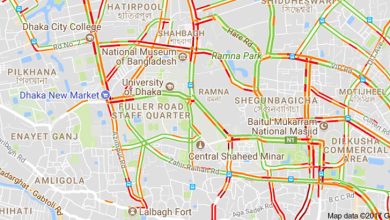Mobile phone tapping and tracking: Govt to launch advanced surveillance system before elections

The government is all set to introduce a new mobile phone surveillance system ahead of upcoming elections, enabling the police and intelligence agencies to access the precise location as well as other confidential information of a mobile phone user.
The system would cost nearly Tk 2 billion to be installed by the mobile operators.
A surveillance system is still in place, but it does not provide the precise location of a mobile phone user. Under the current system, it is possible to identify the area where a mobile user is located, but the precise location remains untracked.
The new system, however, will provide precise location of the mobile phone, allowing authorities to determine even the specific building a person is in, as well as to track the movement of a large group through artificial intelligence (AI) at a time.
The new system will preserve “geo-location” data of mobile phone users for six months, helping the authorities to get a precise picture of the users movement during the period.
On the condition of anonymity, a telecommunication technology expert said it is tough to track a large number of people at a time in the existing system as the officials have to gather information individually through a manual system.
In contrast, the new system will use AI and make it easier to analyse the geo-location data of thousands of people simultaneously.
According to official documents, the new surveillance system – Integrated Lawful Interception System (ILIS) – will link all internet service providers (ISPs), international internet gateways (IIGs), national internet exchange (NIX) service providers, and mobile operators to the system of a government agency.
The integrated system will provide geo location data of all mobile phone users to the law enforcers as well as intelligence agencies.
According to documents and sources, the authorities took an initiative to introduce the ILIS in 2018, when a letter was issued to the concerned private organizations and its copies to the associated ministries and other government offices.
However, it could not be introduced due to the unpreparedness of the government and a delaying approach from the operators. However, the authorities recently summoned the private organisations and instructed them to launch the advanced surveillance system by November.
The move appears significant as the country is all set to hold a parliamentary election in January next year and the oppositions are in efforts to gear up their movement against the government.
Operators to bear the cost
Home minister Asaduzzaman Khan Kamal, in response to a question on 12 January, told the parliament that the government had taken an initiative to launch a mechanism for ‘lawful interception’ with the aim to contain anti-state and anti-government activities. ILIS is a part of the system.






